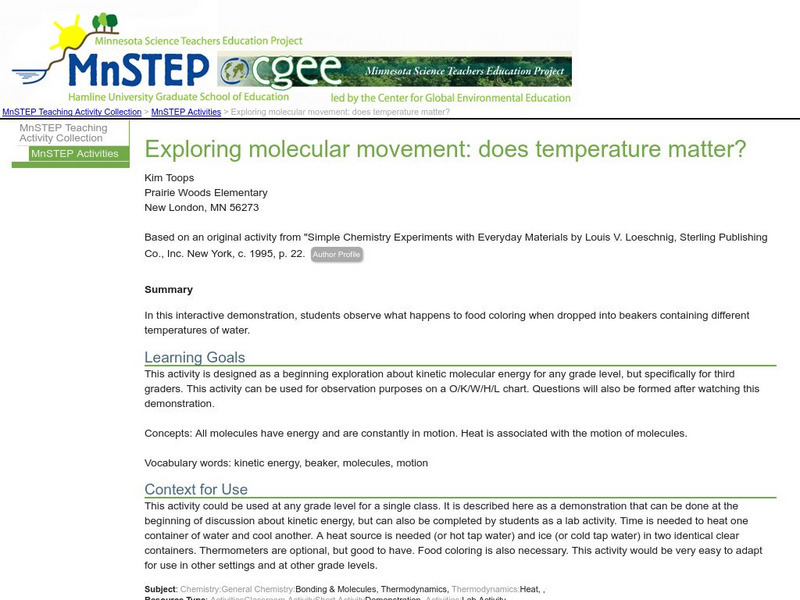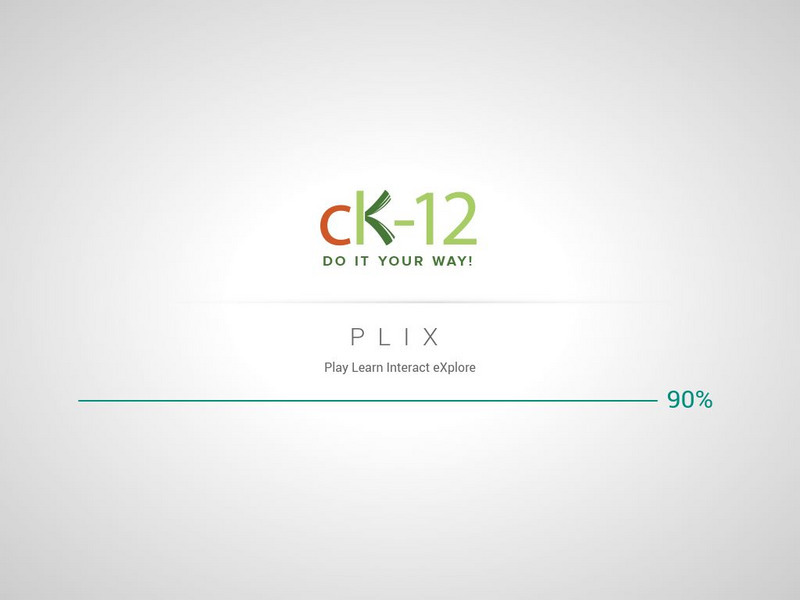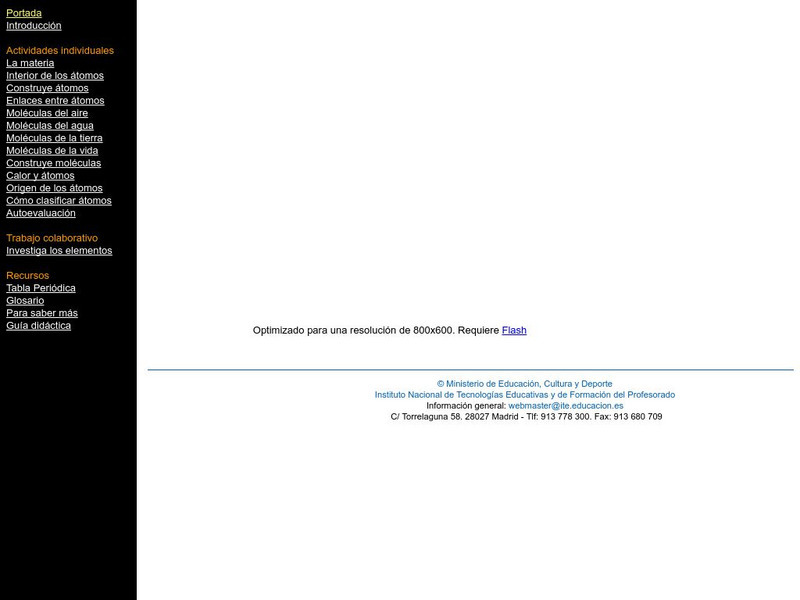University Corporation for Atmospheric Research
Ucar: Just a Phase: Water as a Solid, Liquid, and Gas
This site helps students construct a model of the arrangement of water molecules when present as solid, liquid or gas. Includes background information, lesson plans, links to standards and assessment ideas.
Science Education Resource Center at Carleton College
Serc: Exploring Molecular Movement: Does Temperature Matter?
In this interactive demonstration, students observe what happens to food coloring when dropped into beakers containing different temperatures of water.
CK-12 Foundation
Ck 12: Earth Science: States of Water Study Guide
[Free Registration/Login may be required to access all resource tools.] This study guide summarizes key points about the three states of water. Includes a few questions to check for understanding.
Museum of Science
The Atom's Family: Phases of Matter
Help the Phantom choose a material and observe the changes at different temperatures in the molecule chamber. What happens to the elements or molecules as the temperature changes?
Other
University of Kansas: Quarked!: Matter Mechanic
Build elements and molecules using neutrons, protons, and electrons. Choices include helium, carbon, oxygen, aluminum, water, and salt.
Science Education Resource Center at Carleton College
Serc: Exploring Molecular Movement: Does Temperature Matter?
In this interactive demonstration, students observe what happens to food coloring when dropped into beakers containing different temperatures of water.
New York University
New York University: States of Water
Use this resource to learn about the three different phases of water; solid, liquid, and gas. What happens to water as it changes into a solid or gas? Includes short and easy to do activity.
CK-12 Foundation
Ck 12: Plix: Structure of Water: Phases of Matter
[Free Registration/Login Required] Explore this interactive by dragging the red dots to match each physical state of water with the correct picture of its molecules.
American Chemical Society
Middle School Chemistry: Changing State: Evaporation
Students build a model of a water molecule and design an experiment to see if adding energy affects the rate of evaporation.
American Chemical Society
Middle School Chemistry: Changing State: Freezing
Students investigate how low temperature causes water vapor to condense into a liquid and then freeze to form a solid.
American Chemical Society
Middle School Chemistry: Changing State: Melting
Discover the concept that energy transfer and molecular motion cause the change in state from a solid to a liquid. Also compare state changes of water to the state changes of other substances.
Ministerio de Educación (Spain)
Ministerio De Educacion: Viaje Al Interior De La Materia
These interactive materials will help you to understand how matter is made up and will help you expand your knowledge on matter. You will find an evaluation at the end.
Bill Nye
Bill Nye: Sock It to Me
This tutorial by Bill Nye explains how evaporating water (or sweat!) can cool you down.
Other
Science Alive: Pure Substances, Mixtures, and Separations
One way scientists talk about matter or substance-that is, the stuff in the world-is in terms of pure substances and mixtures. Pure substances are substances that contain only one kind of molecule. Water with nothing else in it is a pure...
PBS
Pbs Teachers: Bottle Fountain Experiment
Demonstrate how heating expands air molecules by constructing a bottle fountain powered by air pressure.
PBS
Pbs Teachers: Floating Paper Clips Experiment
Explore surface tension in water by making a paper clip float.
Utah STEM Foundation
Utah Stem Action Center: Salt Dissolved in Great Salt Lake
In this lesson, students will compare water from a fresh lake to water from the Great Salt Lake to begin to build a conceptual model for how salt dissolves in water. The lesson focuses on students using and developing models of molecules...











